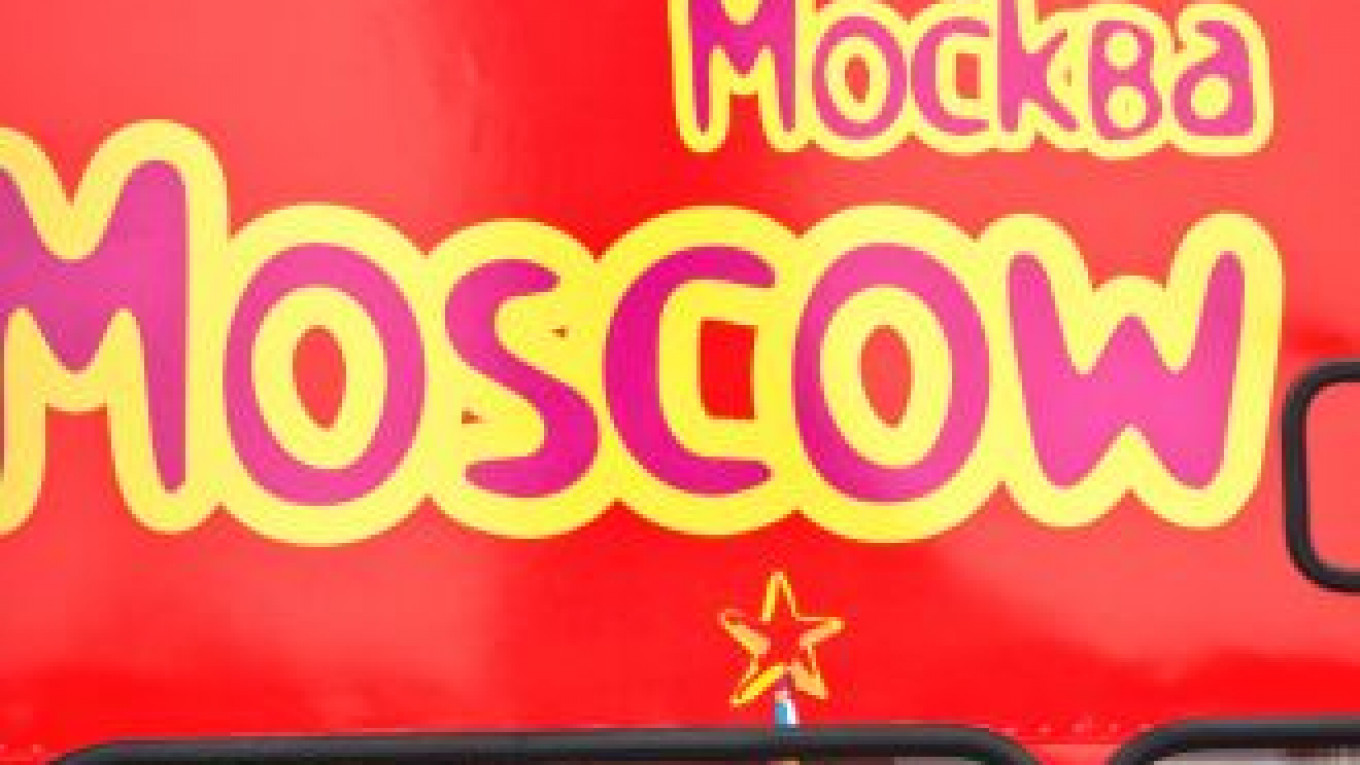The double-decker bus with the words CitySightseeing on the side comes to a stop close to Lubyanka and I approach the door.
"Do you want to come in?" says the man with a beard inside the bus, doubtfully, as if he were working in a paddy wagon full of prisoners instead of a tour bus.
"Yes," I say, putting a decisive foot across the threshold of the bus.
"And who are you?" the beard asks, now smiling.
That's when I start to have doubts. Maybe it is a special bus, one not for the likes of me.
"Who could I be?"
"Student, pensioner, a child," he says.
"A person, just a person."
"Not just a person, but a very nice person," the bearded man flatters me before offering me a ticket for 600 rubles, some earphones and a blanket for the excursion.
Three double-decker tourists buses began working in Moscow at the end of August. The buses work on the "hop on, hop off" principle. The buses tour the local sights on a circular route, which allows passengers to get on and off at any stop over the course of 48 hours. The Moscow buses have one hour-long route with 18 stops, and a second longer route will start up next spring.
The fact that the bearded driver was surprised that I knew of the existence of the buses isn't that surprising. There have been stories in local media but otherwise the only information is via info brochures given out on the buses themselves and at the starting point of the bus route by the statue of artist Ilya Repin on Bolotnaya Ploshchad, where a placard shows the route.
On the top floor of the bus, 15 people, mostly foreigners, sit wrapped in blankets and listening to the excursion tour through one-use only earphones. The tours are broadcast in English and Russian. It's overcast but with the windows open and a roof overhead, it's a pleasant place to be.
We head along the embankment by the Kremlin and I get the impression that Moscow is just a city by the river made up of 18th and 19th century buildings, with a lot of bridges and fountains. The audio guide explains what we see; the empty space where the hotel Russia once was, the bell tower of the church of the resurrection in Kadashakh.
Not a word is said about the famous protests over construction near the church. We drive past Bolotnaya, past Christ the Savior Cathedral and there is no real information about them either. There is only some mumbling about the park that was created in the 1950s and about how the cathedral's main hall can hold 10,000 people. The freshest information is about the previous city mayor and the Peter the Great statue by sculptor Zurab Tsereteli, an artist with a "questionable" reputation.
Apart from the usual banalities about the Kremlin and other sights, you can also learn less well known facts like the length of the shortest street in the city: 48 meters. That is Ulitsa Venetsianova in the artist's village in Sokol.
Nevertheless, one tourist gets off looking bored at Bolotnaya Ploshchad, and the tourists notice and take photos of things that don't get a mention in the audio guide.
One woman points out to a friend in English about the "trendy green man" on a traffic light. A girl from the Moscow region takes photos from different angles of a traffic jam that the bus got stuck in on Bolshoi Kammeny bridge.
"I think that bus excursions in my school days were more interesting, " says a mother who had decided to show her son Red Square and accidentally noticed the bus.
"Boring?" says a girl sitting nearby who had spent all the journey discussing the film "Everyone Dies But Me." "You should have brought a group of friends with you."
For more information on the bus tours, see?
Related articles:
A Message from The Moscow Times:
Dear readers,
We are facing unprecedented challenges. Russia's Prosecutor General's Office has designated The Moscow Times as an "undesirable" organization, criminalizing our work and putting our staff at risk of prosecution. This follows our earlier unjust labeling as a "foreign agent."
These actions are direct attempts to silence independent journalism in Russia. The authorities claim our work "discredits the decisions of the Russian leadership." We see things differently: we strive to provide accurate, unbiased reporting on Russia.
We, the journalists of The Moscow Times, refuse to be silenced. But to continue our work, we need your help.
Your support, no matter how small, makes a world of difference. If you can, please support us monthly starting from just $2. It's quick to set up, and every contribution makes a significant impact.
By supporting The Moscow Times, you're defending open, independent journalism in the face of repression. Thank you for standing with us.
Remind me later.


